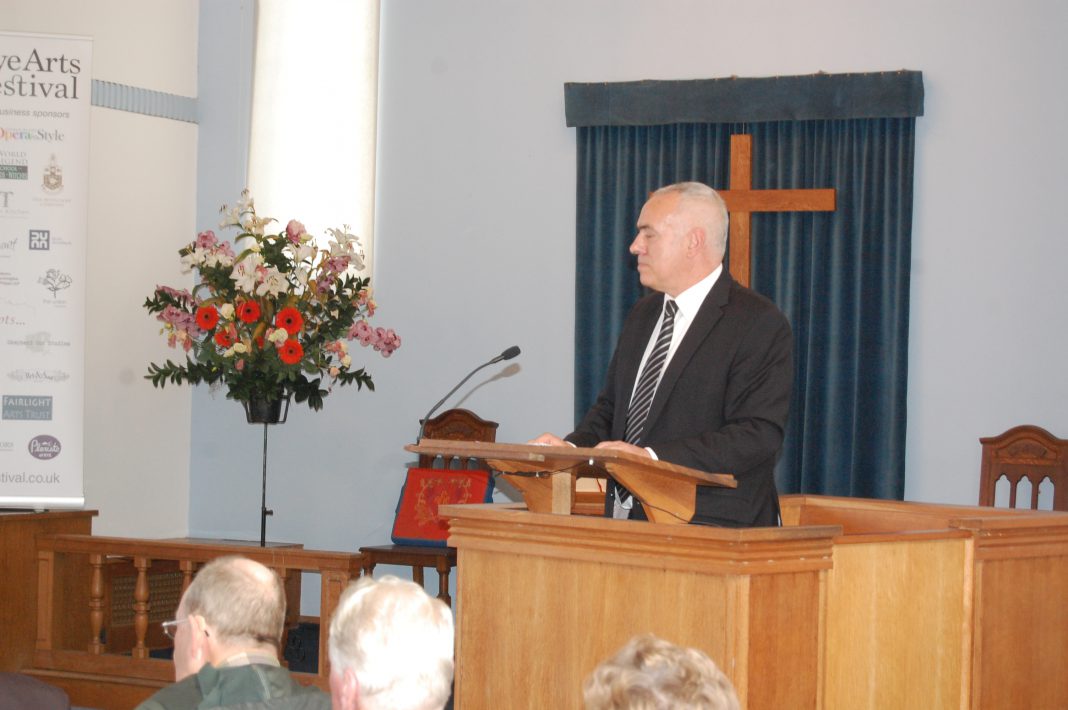In a hard-hitting address to a full audience at Rye Methodist church last Saturday, John Cooper QC challenged the general public’s complacency regarding the British criminal justice system.
He introduced his talk, one of the events on the final weekend of the Arts Festival, by referring to his very first court appearance, defending a man accused of shoplifting two cauliflowers. That was in December 1984 in Rye Magistrates Court, no less, held then and until 1992 in Rye Town Hall. During that assignment, the impressionable young barrister learnt about the notorious trial in 1743 of John Breeds who was sentenced to death by Mayor James Lamb, his intended murder victim, who acted as judge, part-time prosecutor and witness, a flagrant case of judicial bias.
As recently as 1969, Lord Justice Bingham felt able to remark: “The English criminal justice system is the best of English institutions.” Even the proud boast that “in England a man is innocent until proven guilty” is questionable in today’s world. Just how prejudicial is it, asked Cooper, when the prisoner is escorted sometimes handcuffed into the dock to face the jury? Other jurisdictions, such as South Africa’s, have abolished the dock.
Then again, the majority of criminal law practice and process is not made by Act of Parliament, but introduced by secondary legislation, very much along party political lines, not debated or voted upon and often poorly drafted by unelected experts. The issuing of judicial practice notes requires judges to follow sentencing guidelines and adopt bureaucratic processes that strike at the heart of judicial independence,
“There is strong pressure on citizens to plead guilty at the first opportunity” said the speaker. There has been a slow degrading of the criminal justice system, undermining the effective defence of the citizen.” He sees Legal Aid provision as the NHS of the Law and its whittling away is very much every citizen’s concern. He gave as example a possible case of mistaken identity which could lead anyone into the deepest legal jeopardy.
“The purpose of the trial process is to test the evidence of the State against the citizen: to convict or to acquit. It is not about investigating what happened, it is not about reparation, not about the victim: is is about the evidence against the citizen, ‘beyond reasonable doubt’.”
John Cooper argued forcibly that Crown prosecutors now have a lighter burden of proof than before. For example, S.99 of the Criminal Justice Act 2003 has allowed bad character reference to be adduced in court which could rest on the slenderest allegation of ‘a disposition towards misconduct’, perhaps as trivial as the prisoner having had a red card issued at a football match! He sees these developments as extremely dangerous. Hearsay evidence previously not allowed, can now be introduced if a witness is fearful for his or her safety if giving evidence against the accused. This has potentially further prejudiced the right to a fair trial.
Recent legislation is directed towards “smoothing the passage for conviction” rather than seeking to uphold the rights of the defendant. The prevailing ethos of government is illustrated by one political party’s manifesto in 2001 which stated: “It is our aim to get 1,400 more convicted criminals.” The criminal justice system is now too victim-centric, he declared.
He identified other dangerous trends promoting injustice: the diminution of the right to trial by jury, the restrictions upon rights of public access to the courts, defects in the criminal appeal system, and the increased barriers to obtaining legal aid.
He concluded that: “Our criminal justice system is nothing to be proud of. We as citizens have to educate ourselves to what is happening. There are no votes for politicians in seeking to redress the balance, because people don’t seem to care on the basis that ‘it can’t happen to me’.”
John Cooper is visiting Professor of Law at Cardiff University. He has acted in the Warboys judicial review and in the Grenfell Tower inquiry.
Image Credits: Kenneth Bird .



